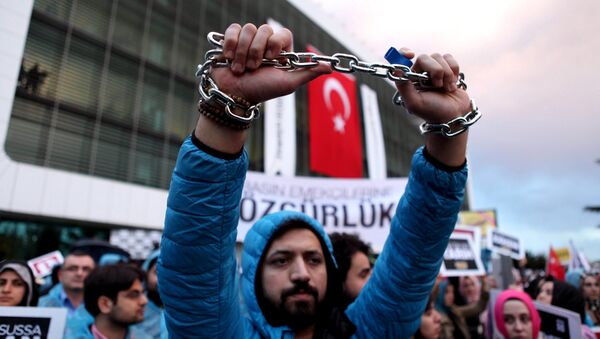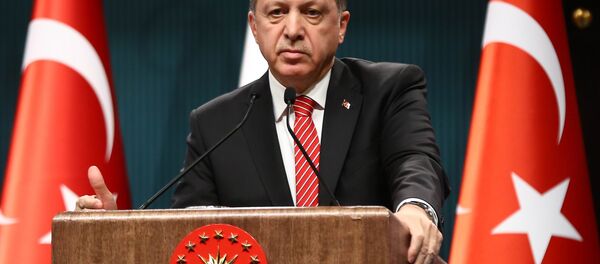While Dutch Prime Minister Mark Rutte said he was "moderately optimistic" about a deal being struck with Turkey, a number of other EU leaders raised concerns about negotiating with Ankara following a media crackdown which saw the country's top-selling newspaper, Zaman, seized by government authorities.
.@JunckerEU @eucopresident #EUCO working lunch w/ @Ahmet_Davutoglu: working in partnership to tackle #RefugeeCrisis pic.twitter.com/EdBOCEzuRm
— Mina Andreeva (@Mina_Andreeva) March 7, 2016
.@MinPres has been preparing today's #EUCO meeting on #refugeecrisis. Make sure to follow Mark Rutte for updates! pic.twitter.com/GESXDPUCam
— ALDE Party (@ALDEParty) March 7, 2016
The intervention with Zaman has been widely derided as a disaster for the country's press freedom, with critics slamming the government takeover, which also saw police fire tear gas and rubber bullets at protesters over the weekend.
Turkish Media Takeover 'Not Acceptable'
European Parliament President Martin Schulz said he had told Turkish officials that press freedom was "a non-negotiable element of our European identity," while French Foreign Minister Jean-Marc Ayrault said Ankara's decision to seize control of the newspaper was "not acceptable."
If one disagrees about claims or reports of a newspaper, he should counter them with facts, not by gagging journalism #Zaman
— Martin Schulz (@MartinSchulz) March 5, 2016
"It's not acceptable. We can't want to get closer to European standards and not respect the pluralism of the media. It's obvious and we've said it clearly to the Turks," Ayrault told France Inter radio.
The seizure of #Zaman is yet another blow to #pressfreedom in #Turkey. I intend to raise this issue on Monday @Ahmet_Davutoglu
— Martin Schulz (@MartinSchulz) March 5, 2016
French President Francois Hollande backed his foreign minister, saying that despite looking for Turkish cooperation, the EU should not shy away from raising concerns with officials in Ankara.
"Cooperating with Turkey doesn't mean we should not be extremely vigilant about press freedom. And I am."
German Chancellor Angela Merkel was another to raise the issue with Davutoglu, with government spokesperson Christiane Wirtz confirming the matter of press freedom had been brought up during talks.
Turkey's restriction of national media also comes amid concerns over the country's approach to the Kurdish peace process.
#BreakTheSilence about treatment of Kurds in #Turkey, human rights abuses & threats to democracy pic.twitter.com/aBNBM4aygd
— Natalie Bennett (@natalieben) March 6, 2016
Following a breakdown in a ceasefire between the Turkish government Kurdish insurgents in mid-2015, many areas of the country's Kurdish dominated southeast have been placed under constant curfew, with reports of civilian deaths and casualties as a result of the government's offensive against militia groups in the region.
Restricted criticism
Some observers have even suggested that the Turkish government's crackdown on local media was deliberately timed to limit the amount of EU abuse directed towards Turkey.
These concerns come amid fears Turkey may try to blackmail the EU into negotiating a favorable deal, after President Recep Tayyip Erdogan in November threatened to flood Europe with migrants and refugees if the EU did not offer Turkey a better deal.



